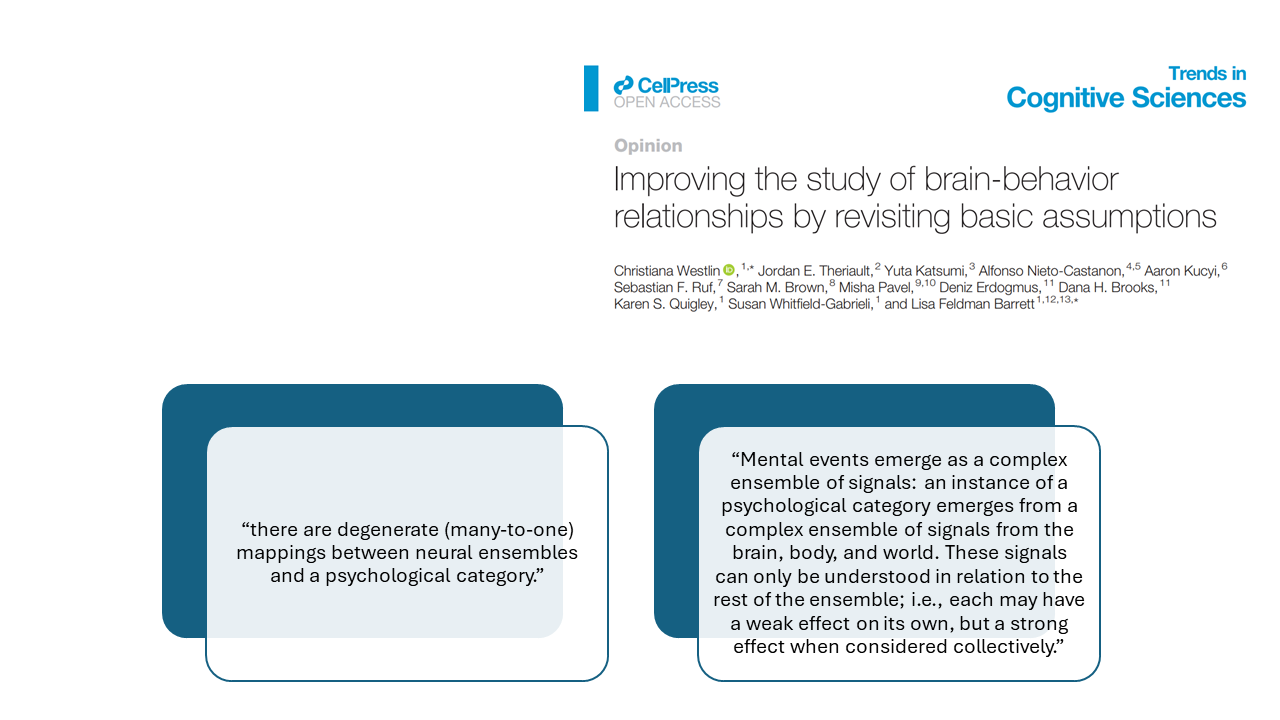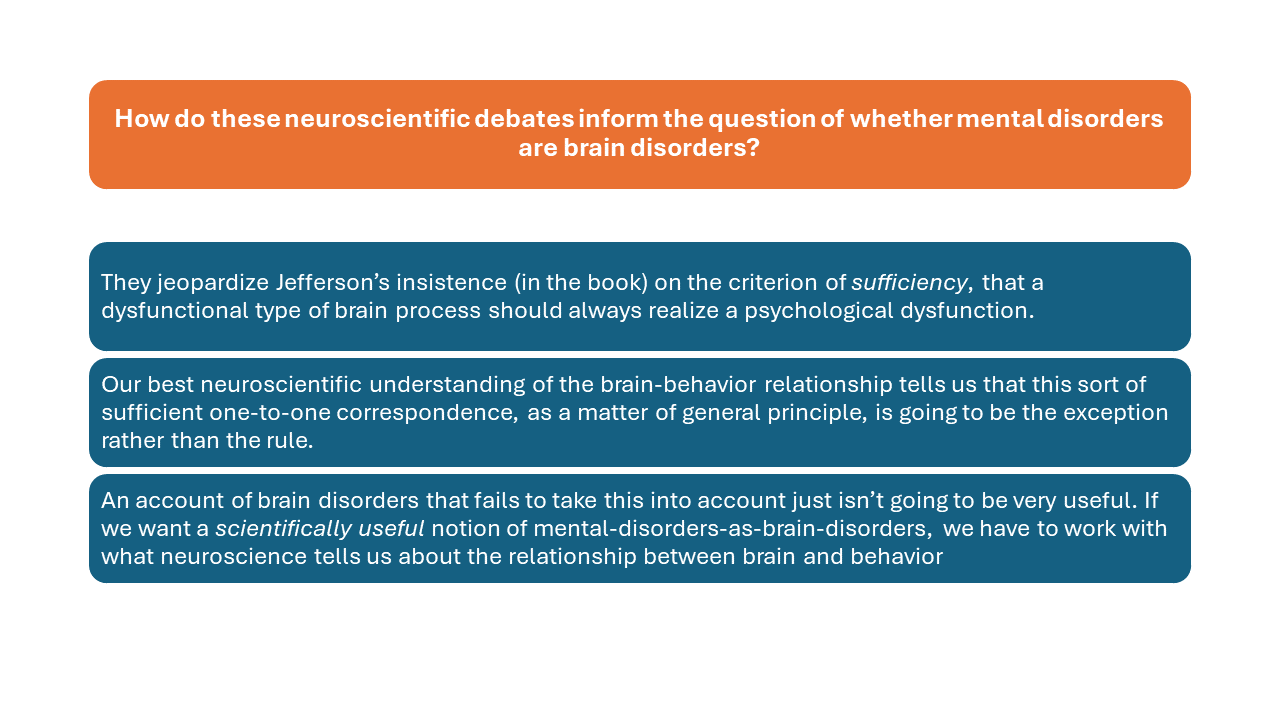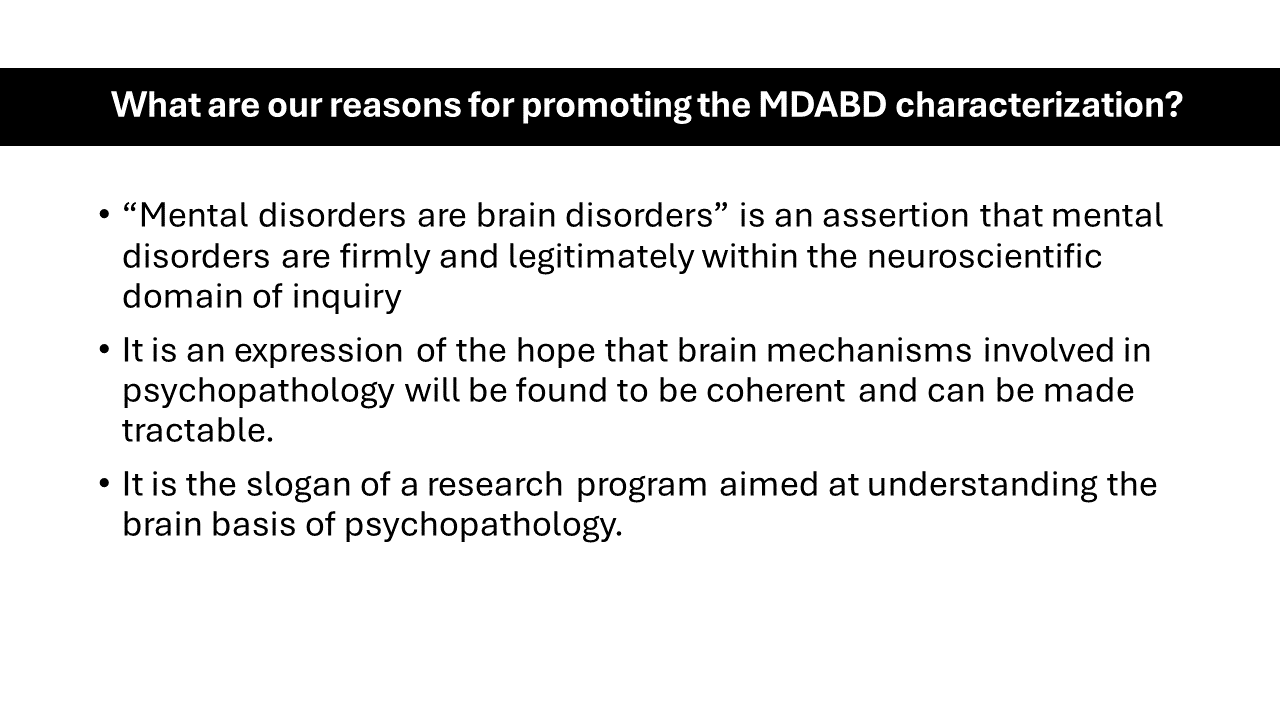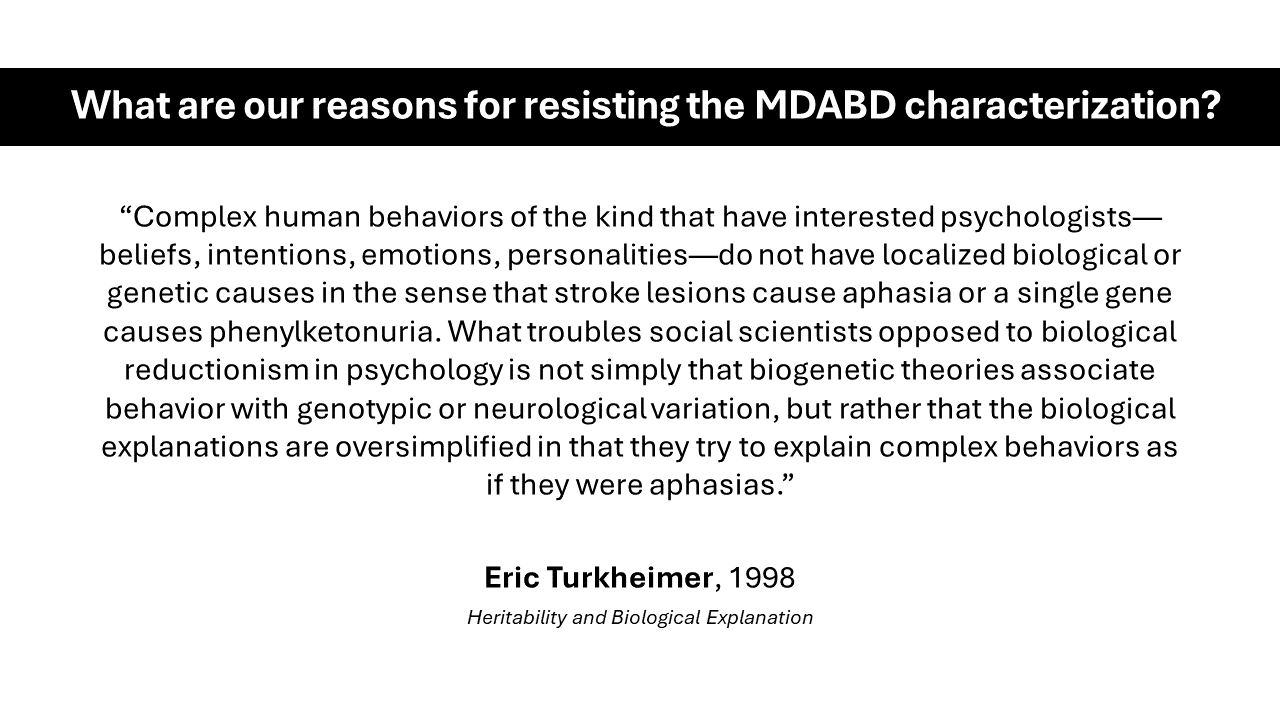Neuroscience and Philosophy Salon - Mental Disorders and Brain Disorders
On March 21, 2024, Luiz Pessoa (author of The Entangled Brain) organized an online Neuroscience and Philosophy Salon session on the topic: Are “mental disorders” “brain disorders”? The salon consisted of presentations by Anneli Jefferson and me, about 20 minutes each, followed by commentaries by Nicole Rust, Alexey Tolchinsky, and Eiko Fried, concluding with Q&A and general discussion.
The video recording of the salon is available online at the Neuroscience & Philosophy Salon channel (access here), and presentation slides from the salon can be accessed here at OSF. I’ll also post slides from my presentation as images below for your convenience. My talk goes over issues I have previously discussed in my Philosophical Psychology article “Mental disorders in entangled brains” (summary) as well as a recent blog post. My discussion is organized around the 3 questions of:
When are we justified in calling “mental disorders” as “brain disorders”?
What are our reasons for promoting or resisting this characterization?
What are we obliged to accept?
Nicole Rust also has a piece coming out in the Transmitter on Monday (April 8) on this issue in the context of mood disorders, featuring quotes from many different folks working in this area (including me). I’ll link to the article once it is published.




















I think there is too much variation in mental disorders to collectively categorize them as either brain disorders or not brain disorders, and this has important implications for public policy. One of the biggest obstacles to good public policies that respect human rights--balancing the right to treatment with the right to free choice (e.g., involuntary/voluntary treatment, housing/homelessness, legal culpability/innocence) for persons with behaviors associated with mental disorders--is accepting that these are complex issues that require complex solutions. Jesus Ramirez-Bermudez commented on this toward the end of the YouTube video. As a society, we are too fond of simple policies that do not fit all conditions. As often emphasized on Psychiatry At The Margins, we need nuance and humility.